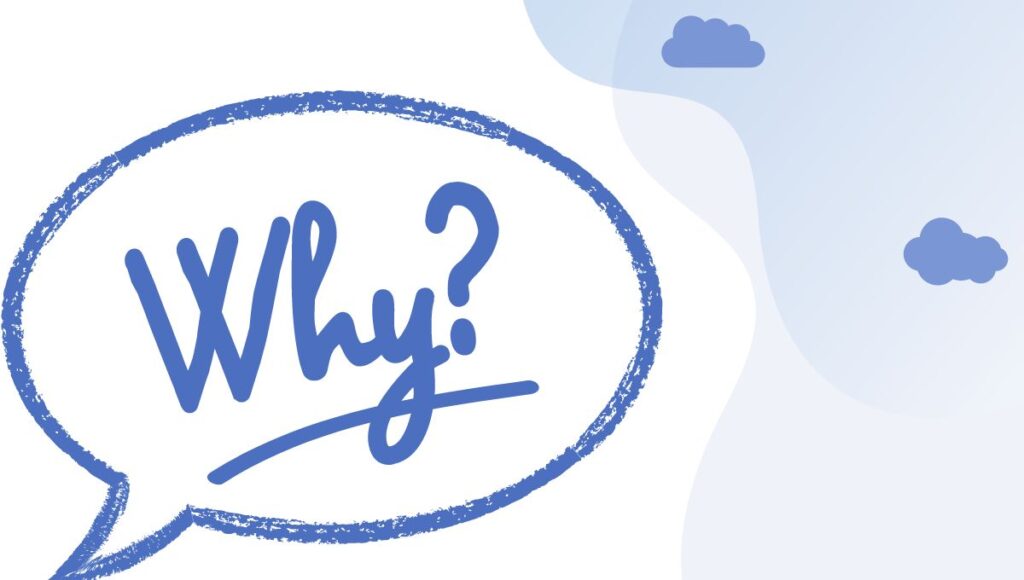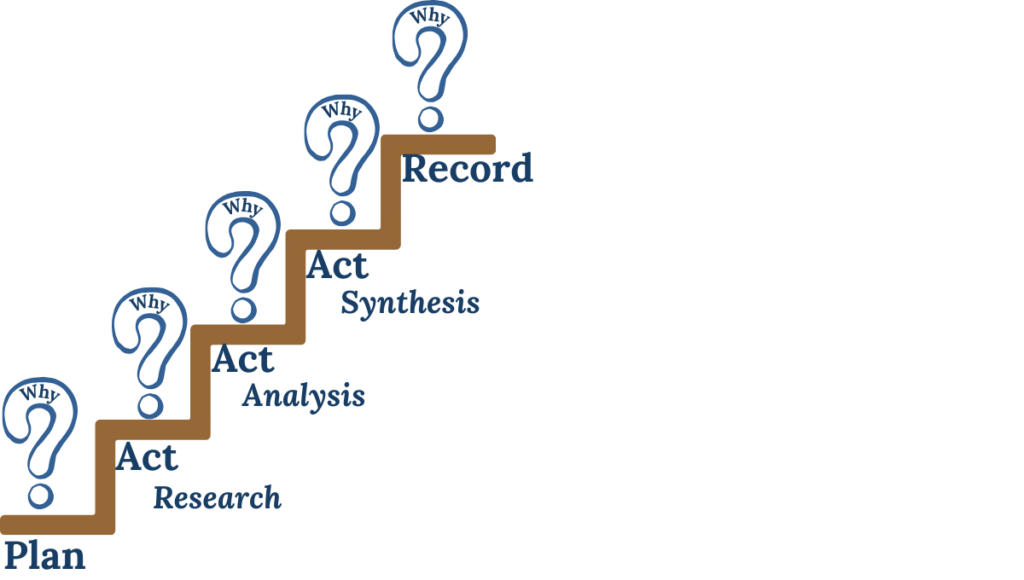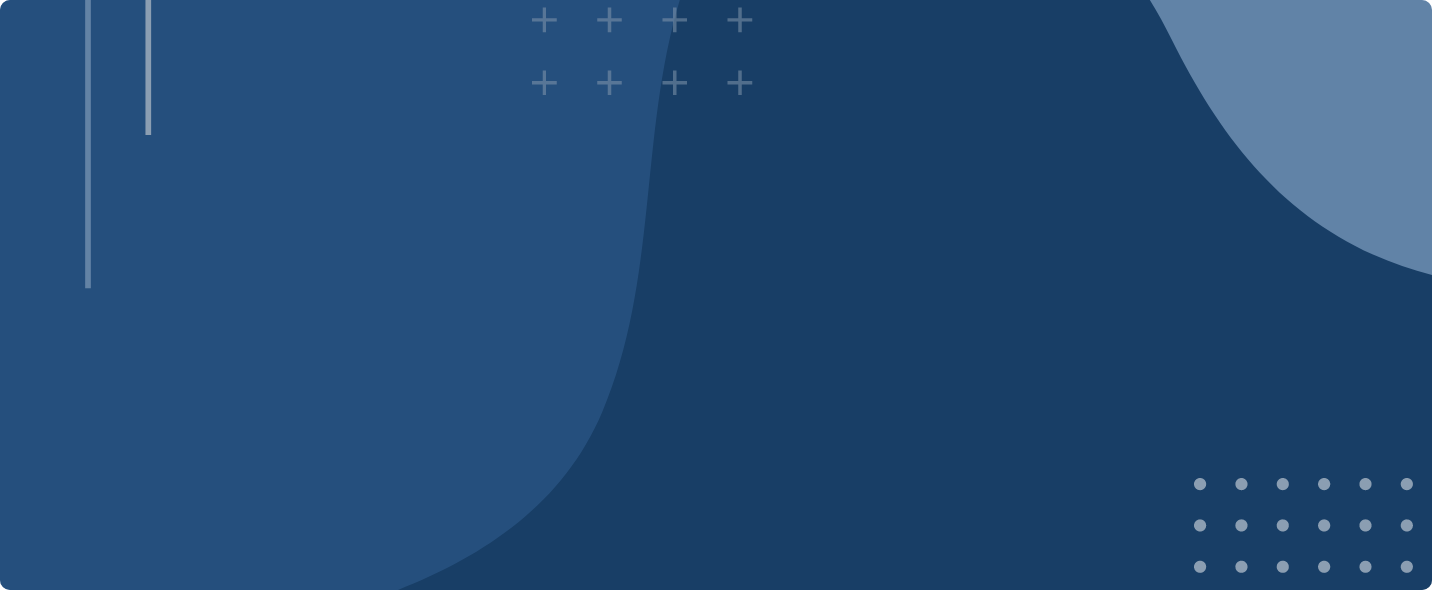Jun 30, 2024
The “Why” Question Is A Powerful Tool For Diligence
PAR Diligence StrategyTools

Asking “why?” will organize and guide your diligence and provide meaningful insights for your diligence project. For ideas on how to use the “why” question read today’s post.
The “Why” Question is a Tool
When you were a child did you ask – why- over and over again? I remember following my mom from room to room asking her “why?” about everything! Pestering her until she was tired of answering my questions and shooed me away. This is what children do, they ask why? It is part of their development, how they learn and gain an understanding of the world.
Unfortunately, as we age we seem to stop asking “why?” especially in business and organizational settings. Today, I am going to explore why asking “why” means better diligence. The short answer is for the same reasons we ask as a child – to learn and to gain an understanding of the world – the world as it relates to our specific diligence project.
Using the Why Question for Better Diligence
Why plays a role in all aspects of a diligence project. Using the Diligence File Framework as an example, you can see that asking “why” is important throughout the PAR strategy – Plan – Act (research, analysis and synthesis) – Record.

Plan – the first step in diligence planning is to set your goal. The goal is the answer to – why are you performing diligence? The answer may be that you want to comply with a law or regulation, you are seeking information for a transaction, you need to align organizational activity with ethics and mission? Whatever it is, you perform diligence for a reason and that reason is your “why.”
Research – why are you engaging in the particular research? Why is the research important to reaching the diligence goal, why is the specific material that you discover useful or trustworthy? Why am I finished with my research?
Motivation – part of your diligence project may include understanding individual or organizational motivation. So then you begin to ask things like, why did someone behave this way, why did they make certain decisions or choices, why are they allowing specific behaviors to continue?
Background and History – information, behaviors and people, have backgrounds and history. Probing these topics using the question why is helpful. For example, Why is there a gap in a timeline? Why did a certain event happen? Why were specific choices made at certain points in time?
Analysis – when you are in the analysis phase of diligence you are looking at the material you found during your research and asking yourself many questions including – why is this important? Why do I care about this material? Why is this material suitable or why is it not suitable, for the project? Why am I finished with the analysis?
Synthesis – synthesis is the process of matching the results of your diligence work to the specific project goal(s). In other words, does your diligence work meet your goals and if so – why? Can you clearly and systematically explain your process, your evidence and your results in such a way that they will hold up to an outside review.
Record – you record action for many reasons, including compliance and legal record keeping requirements, internal rules, for future use and education, to memorialize processes. Why, may be used to organize the recording process. For example, you can set up the summary of the diligence project by answering a series of “why” prompts – why the project goals, why this diligence processes, why did you use this information, why did you draw your diligence conclusions.
What Happens When Don’t People Ask – Why ?
The failure to ask “why” can be catastrophic, to your job, your team, your organization. If you don’t ask “why” there is potential for:
- Causing or missing errors
- Making decisions based on bad information, confusion or uncertainty
- Unknowingly using and spreading disinformation, misinformation and lies
- Allowing security and privacy breaches such as phishing, ransomware, hacking attacks
- Becoming the target of criminals and criminal acts
- Participating in criminality, for example, money laundering, terrorist financing, human trafficking
- Losing your reputation
So Why Don’t People Ask – Why ?
I have seen three reasons tahat people who work in an organization don’t ask why? They are:
- Fear – They are afraid that asking the question will make them look, unprepared, uneducated, unprofessional or difficult. And depending on the organization and the culture they may also fear significant consequences or retribution.
- Avoidance – If you don’t ask “why” you don’t have to deal with the answers. The answer to “why” may be more work, take more time, delay or cancel a transaction or require a difficult decision. So the thinking is, “what you don’t know can’t hurt you.” But of course history disproves this over and over again, what you don’t know leaves you vulnerable.
- Out of Practice – people fall out of practice of asking -why? The easy default is just to accept what they find, read or are told. Critical thinking which is often based on the question “why” is a skill and an art and it is seldom taught and not often practiced these days as evidenced by the huge and growing amount of disinformation, misinformation and outright lies that gain in popularity and significance online.
How to Encourage – Why ?
What can you do if you are a leader in an organization, how can you encourage the use of the “why” question. Do you have to accept that people in your organization just don’t think this way? The answer is no. You don’t have to accept a what is really a lack of critical thinking. You can change the organization and you can change your own thinking, Here are some ideas.
Diagnose the root cause – why are people not asking why?
The four elements of the Diligence File Framework can be a starting point:
- Principles – have you established the principles and lines of communication that allow, encourage and teach people to comfortably ask the question – why?
- Culture and People – does your culture allow the question why? This is about actual behavior not words. Are people allowed to ask why? Are they silenced or punished if they ask why? Are people rewarded or left behind in the organization depending on speaking up or silence. Do you as a leader engage in dialogues with people that encourage discussion? Are there undercurrents or unseen obstacles for example, if the why question results in more work, does the person that asks why question get buried in that work or does everyone pitch in to help?
- Strategy – Have you built the why question into your strategies, your processes and your procedures. This includes building it into the technology that you use to work through diligence projects such as content creation software and knowledge management systems, See the diagram above with the PAR elements as an example of the various stages of why that you can be built into your work processes and strategies.
- Resources – Are you supplying people with the resources that they need. Beginning with education and training and working their way through to the technology. Do people have what they need to understand, use and resolve why questions?
Then based on your review, what is the problem, is it one thing or a combination of elements?
Take Action
Depending on the nature of the problem:
- Make a plan that address the root causes
- Implement the plan
- Fix the problem
It sounds stark, but it is stark. If your people don’t ask, why, they probably don’t ask other questions as well. This is a major red flag for your organization. You are setting yourself up to be a perpetrator or a target of behavior that will have major consequences.
If you need dramatic examples think of the 2008 financial global meltdown, the giant Madoff Ponzi scheme and the recent Theranos scandal. Now imagine what would have happened if more people had asked why? Why are we lending to those that will never repay us, why are we placing vast amounts of money in an investment we don’t understand and can’t replicate? Why are we buying into a technology that has not been properly scientifically vetted by experts?
We all now know how these examples turned out. Not well for many. Don’t be a cautionary tale. Why and other questions are not the enemy, they are an ally. To learn more about the role of questions in diligence and for helpful ways to use questions take a look at this post – Do You Know the Powerful Way You Can Improve Diligence? Most of all remember, what you don’t know will leave you open to harm.
Sign Up to Receive the Diligence File Emails – More Ideas & Resources to Advance Your Diligence
Thank you


Subscribe for Diligence Updates
Get the latest updates, resources, offers, and more.
"*" indicates required fields
The Diligence File respects your privacy. Privacy Policy